We asked serial killers why they want to appear on podcasts - here’s what they said
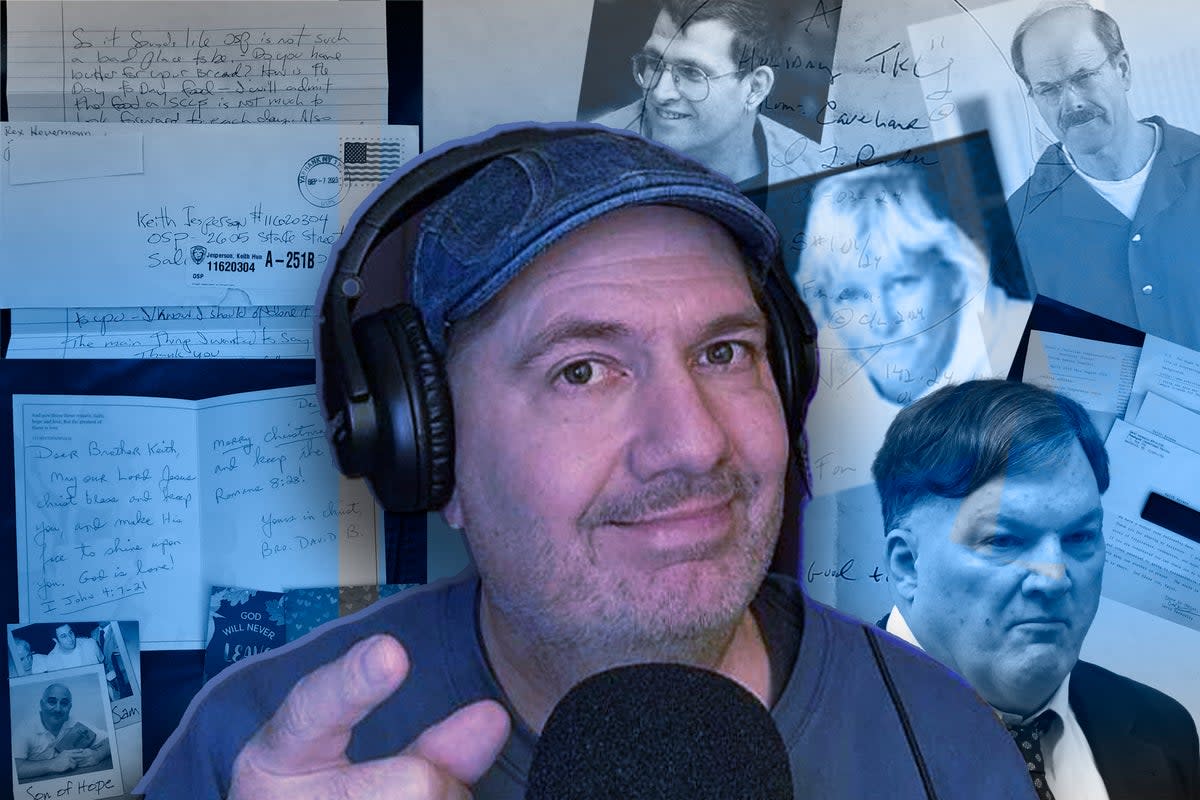
When Keith Jesperson, infamously known as the “Happy Face Killer,” gets yard time at the maximum security prison in Oregon where he’s spent nearly 30 years after ruthlessly slaughtering multiple women, he uses it to make a phone call – to a true crime podcast.
Sometimes the former long-haul trucker nonchalantly recounts what went through his mind as he strangled his victims, all women, during his killing spree in the 1990s. Other times he talks about the secret club for killers inside his prison or brags about swapping stories with his new pen pal, suspected Gilgo Beach serial killer Rex Heuermann.
But most of the time he rambles on about his mundane day-day activities within the prison walls. As do the countless other prisoners who call into The Lighter Side of Serial Killers, a podcast that offers listeners a chance to hear some of the country’s most notorious serial killers chat about whatever topics they please.
“I don’t want anything from them,” host Keith Rovere told The Independent. “I’m not trying to get them to recant their crimes and every gruesome detail. I let them just talk.”
The Lighter Side of Serial Killers offers listeners the chance to hear firsthand accounts from some of the most terrifying and violent offenders in the world.
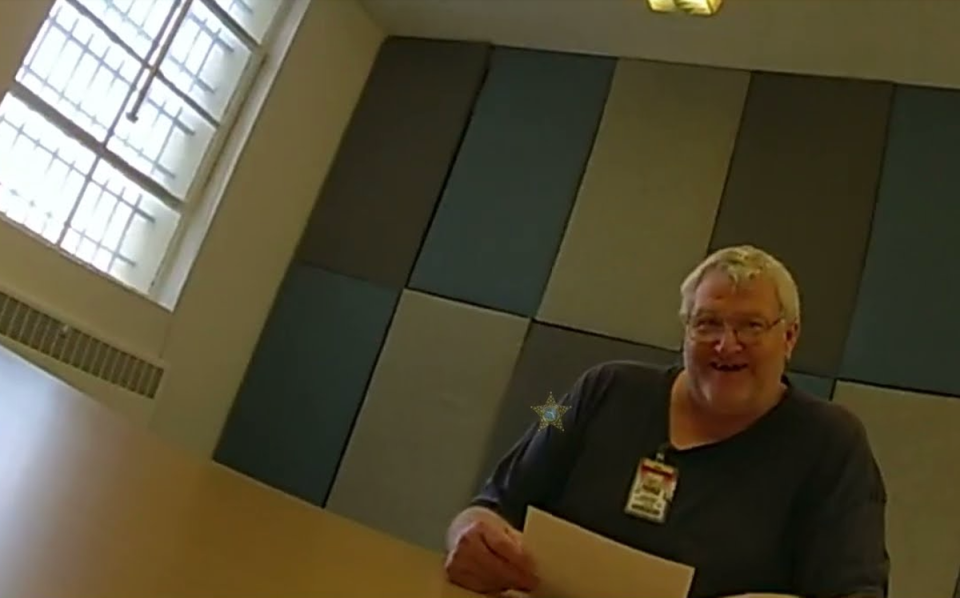
David Berkowitz, known as “Son of Sam,” once terrorized New York City in a killing spree from July 1976 and August 1977, but now bonds with Mr Rovere over their faith and God. (Berkowitz did not respond to an interview request from The Independent).
So far, The Lighter Side of Serial Killers has interviewed 20 convicted murderers — and chatting with a former chaplain is a very different scenario than being questioned by a journalist.
“I’ve been able to humanize them, these killers, with my silly little podcast,” Mr Rovere said. The host still works in prison rehabilitation and has several books on the subject.
Recently, Mr Rovere received a belated Christmas card from Dennis Rader, better known as his self-given nickname “BTK” which stands for “Blind, Torture, Kill.” Jesperson, the Happy Face Killer, has also sent artwork to Mr Rovere, as well as pages and pages of weekly letters filled with his slanted handwriting. One of his drawings is now the logo of the podcast.
“My intent is not to glamourize serial killers, but to instead bring awareness to the lack of rehabilitation in the justice system,” he said. “I reach out to violent offenders in the hopes that through positive reinforcement they can change their lives around.”
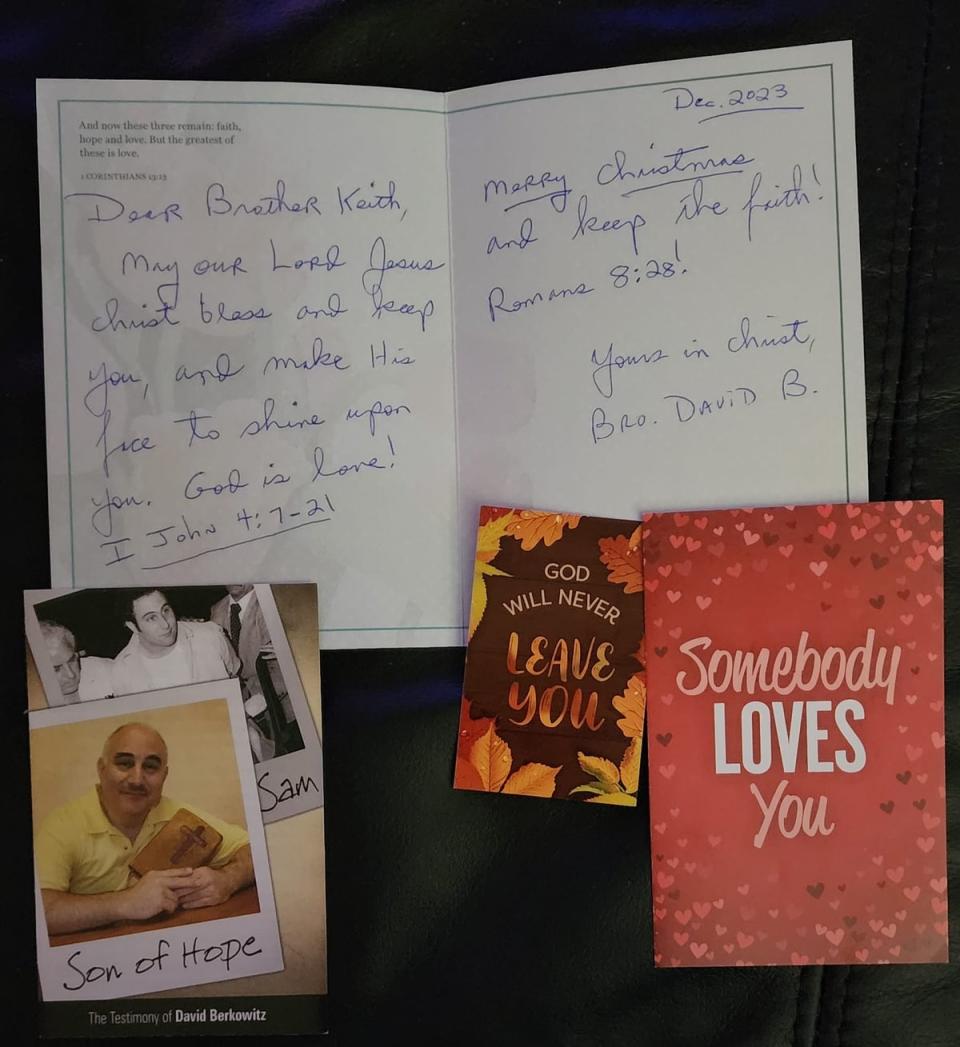
One of his podcast regulars is Jesperson. But if you called out that name at the Oregon State Penitentiary where he’s incarcerated, people would ask “who,” he said with a laugh, when he called The Independent from prison. “I am who I am. ‘Happy’ or ‘happy face’. That’s how they know me.”
Keith Hunter Jesperson, now 68, has been incarcerated at the Oregon State Penitentiary since 1995, where he is serving a life sentence after he brutally murdered at least eight women in several states between 1990 and 1995.
His nickname comes from the smiley faces he scrawled on the truckstop bathroom walls to mark his murders and when he repeatedly evaded capture, the smiley faces became his signature on the taunting letters he sent to the media and to the authorities.
Jesperson talks to Mr Rovere weekly and will continue to do so, “because the podcast offers a podium of truth.”
“This is how I’m going to set the record straight,” Jesperson said, explaining that he’s still being looked at in several murders – but always offers his DNA so he can be ruled out.
“I don’t need murders I didn’t commit being pinned to me just because,” he said. “I don’t need to be made to be even more of a monster than I already am.”
Fighting against the idea of criminals as monsters is something Mr Rovere has done for years working in prison rehabilitation. And with the world’s ongoing obsession with true crime, a phenomenon that shows no sign of slowing down, he decided to turn his weekly calls with killers into a podcast.
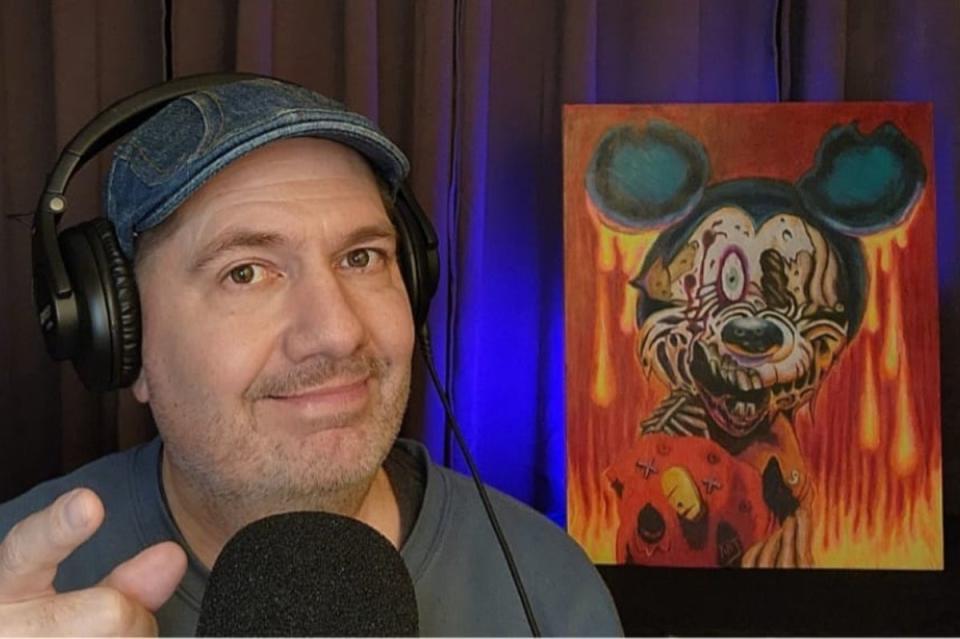
“In some cases, this may be a person who will be released one day and could be your neighbor,” Mr Rovere said. “Would you want this person to be the same person they were when they went in? Or someone who has been shown kindness and love.”
While the podcast host has received his share of backlash and harsh criticism for giving such an open platform to convicted killers, he’s also seen some positive feedback.
That came most recently after he featured serial killer Wayne Adam Ford, a long-haul trucker who talked about his struggle with mental illness.
Ford has been on death row in San Quentin after he confessed in 1998 to killing at least four women and even went so far as to hand over a plastic bag that contained the breast of one of his victims.
“I’ve had people reach out to me, people who were also struggling with mental illness and having urges to do violent things,” Mr Rovere said. “But there is hope at the end of the tunnel. And they heard that in Wayne’s story.”
“This is why I do what I do,” he added.
Many of the prisoners have never even spoken to the news media and most of them do not want to go over the gruesome details of their crimes. And with Mr Rovere, they say, they are not bombarded with those specific questions.
“I’m someone who knows their deepest darkest secrets, but that takes years of trust,” he pointed out. “I’m not the blood and guts guy, I’m the lighter side.”
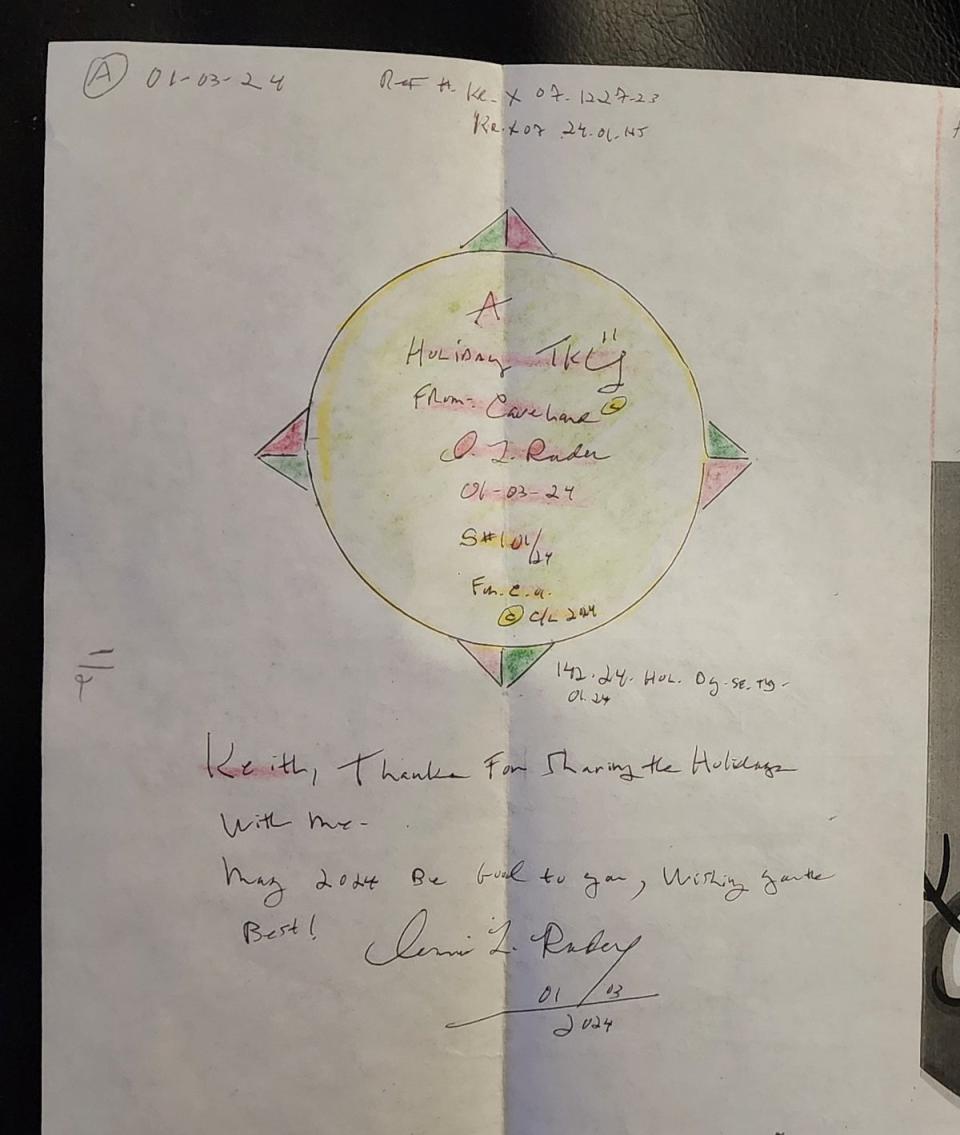
Dana Gray, 66, who is incarcerated in California, where she has been for 30 years after being convicted of murdering three elderly women, told The Independent that she doesn’t feel the need to rehash her actions.
“I don’t want to talk about my crimes, because this isn’t the Dana show,” she said, noting that she doesn’t want anyone associated with the victims to be re-traumatized.
“The victims, and their families, can be triggered by hearing it all over again,” she said. “There’s no need for that. The victims should feel safe.”
She also revealed that she is not a fan of the name of Mr Rovere’s podcast or being branded a serial killer herself, and refuses to even utter the two words. Instead, she says “SKs.”
“My beef with Keith’s podcast is the name,” she said. “I know he promotes rehabilitation, but that name brings with it unshakable images and pumps fear into people. For me, that’s just not who I am, where I am or where I’m going.”
Aside from that, Gray said she is thankful to be given a platform to educate those on the outside about what she deals with being a woman behind bars and her passion for helping rehabilitate fellow inmates.
For 30 years, she wasn’t ready to talk, especially to a true crime news outlet that would turn her story into a salacious headline. But there was something about talking with Mr Rovere’s on his podcast that made her comfortable about speaking publicly.
“I’m ready now,” Gray said. “I want to use my notoriety for something good.”
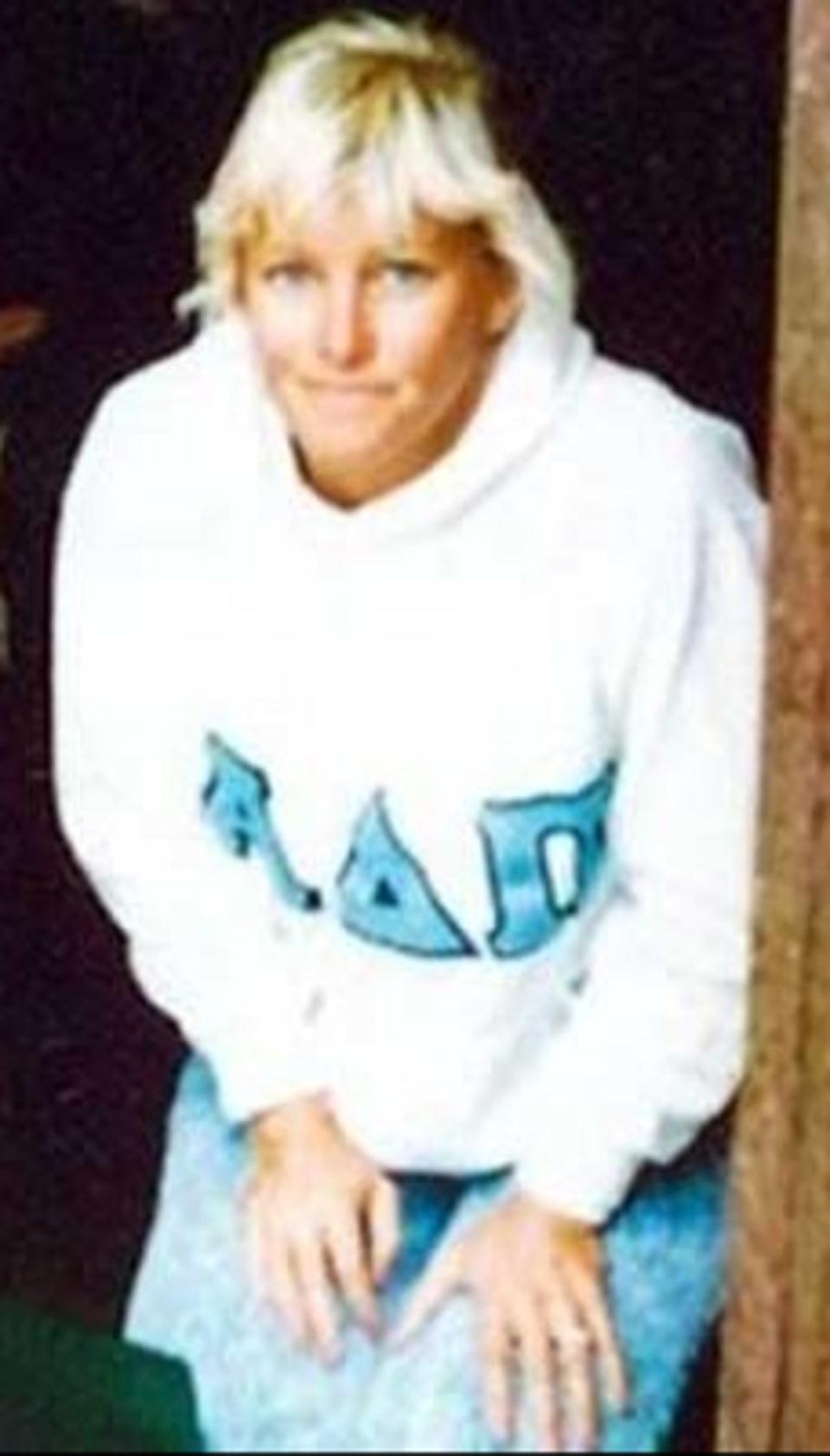
Gray, and other prisoners who spoke to The Independent in recent jail phone calls, say they chose to open up to Mr Rovere because he speaks to them like a friend.
But not everyone is into the idea of murderers being able to speak freely. Some families of victims are downright outraged. Others refuse to even acknowledge it and instead focus on podcasts, documentaries and other platforms that focus on stories about the victims and the victims’ loved ones.
Julie Murray, who just marked the 20th year of the day her sister Maura Murray vanished on 9 February, told The Independent that she always advocates for victim-centered content.
“Putting the focus on the perpetrator is something that, you know, we see on Netflix as entertainment pieces,” she explained, adding that viewers get a look at the person’s entire life.
“What’s neglected in most of those pieces is doing the same for the victims who are boiled down to when the tragedy struck. And I just think that is a disservice to the victims and their families.”
“Their families are watching and to put the focus on the perpetrator is just not right.”
She says families such as hers are retraumatized when cases are treated as entertainment.
“And so it’s like trauma piled on top of trauma ... It’s at a point where the true crime community is just ruthless, and they sideline ethics for dramatic effects, and everything is sensationalized.”

Ms Murray just finished hosting a season of a new podcast called Media Pressure Season 1: The Untold Story of Maura Murray — in collaboration with Sarah Turney, whose own sister Alissa went missing in 2001. Turney went viral on TikTok posting about her sister’s story and later made her own podcast about Alissa.
These are two women who are familiar with the power of being able to wrestle control of the narrative of a crime away from the mainstream media — and Ms Turney can see the comparison to The Lighter Side of Serial Killers.
“Free speech is a two-way street, right? Just as I and Julie have the right to tell our sisters’ stories, these people have a right to a platform,” Ms Turney told The Independent. “These killers or whoever they may be.”
She added that if people feel that what they are hearing is gross or harmful, then “simply don’t listen.”
“At the end of the day, do I think content like that is harmful? Absolutely. Do they have a right to make it? Absolutely,” Ms Turney said.
“It comes down to intentions. The true crime community has evolved over time and they don’t want to see people continuously get hurt. They don’t want to see people like me and Julie and all those families out there continuously get revictimized,” she said.
True crime content has been exploding exponentially for almost a decade. And while viewers might feel comforted and educated by true crime content, so will current or would-be offenders, according to serial killers themselves.
The ones who spoke to The Independent in a 2022 interview about true crime popularity from death row, where media access is severely limited and the extent of the phenomenon has yet to permeate the prison walls, were shocked at public interest in the most gruesome of atrocities. But they issued dire warnings.
“What I can tell you is that there are twice as many serial killers on the street nowadays because these are already smart guys, and now they are watching it and learning and getting smarter and smarter on how to cover their tracks, hide bodies, all of it,” Wayne Adam Ford said, a year before his own appearance on The Lighter Side of Serial Killers.
And speaking publicly could also have repercussions for the prisoners themselves.
In the case of Bruce Davis, 81, a former member of Charles Manson’s murderous cult “family” who committed a series of murders in 1969, his parole hearing may be in jeopardy after his appearances on The Lighter Side of Serial Killers in February 2023 and April 2023.
Mr Rovere said they didn’t speak of his crimes, but instead talked about Davis finding Christian faith in prison and the book that he’s writing.
Parole commissioners voiced concerns after Davis wrote in a Christmas card to Mr Rovere that he was looking forward to his upcoming hearing. He was previously denied parole in 2022.
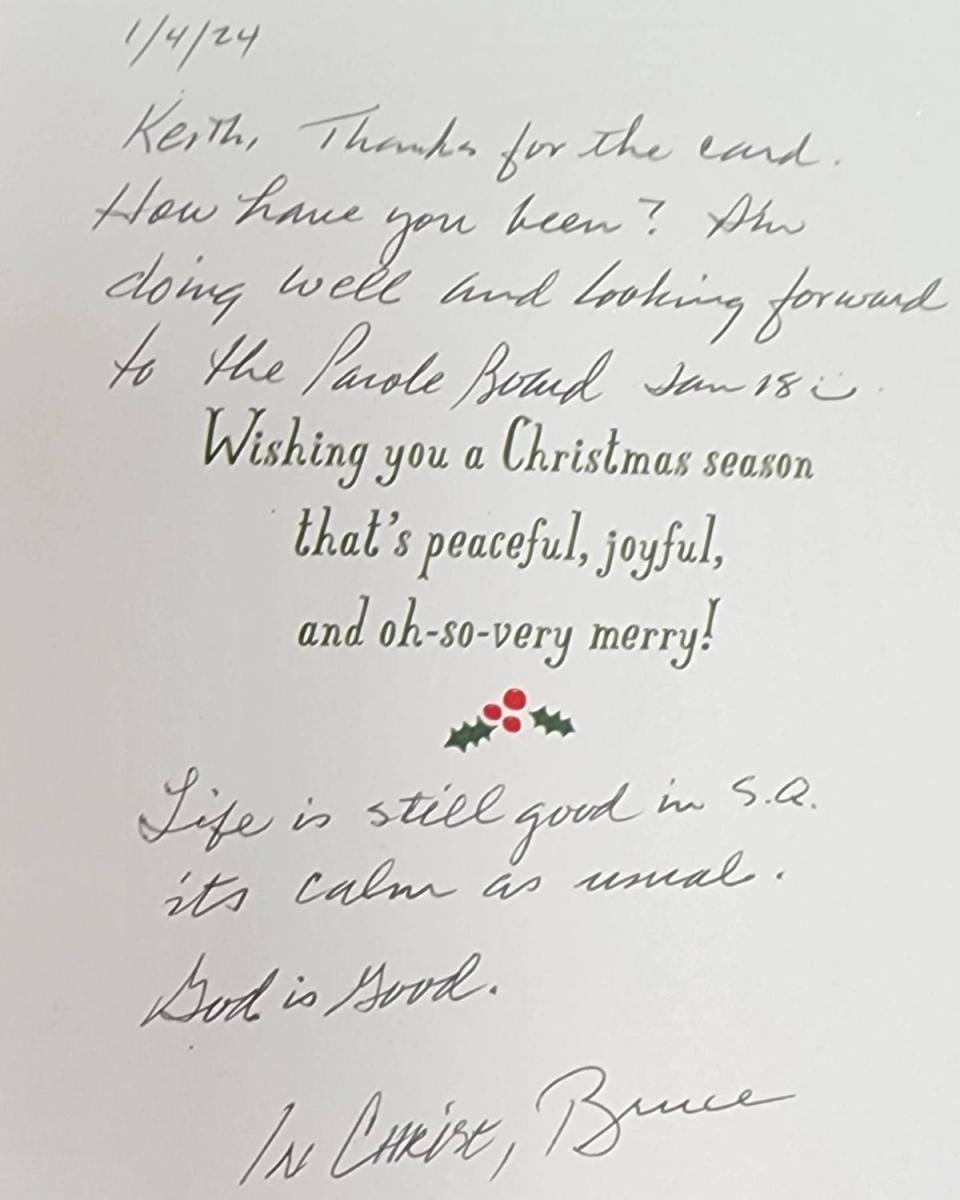
Following the news of the postponement in February, one person tweeted that this “raises concerns about the potential glamorization and normalization of criminal behavior through media platforms, potentially undermining the severity of the crimes committed.”
In response Rovere tweeted: “Unless the platform promotes positive change in the lives of violent offenders through faith and positive reinforcement. Let’s hope the parole board feels the same way.”
Mr Rovere has repeatedly said that he believes in having relationships with the “worst of the worst prisoners.”
“I reach out to violent offenders in the hopes that through positive reinforcement they can change their lives around,” he said.
But for a remorseless Jesperson, there is no true rehabilitation, no matter how many podcast appearances he makes.
“If and when you ever get back out on the street, it doesn’t matter,” Jesperson said.
“You’re still the same person. There’s no changing. No rehabilitation. You can still kill again.”

 Yahoo News
Yahoo News 
